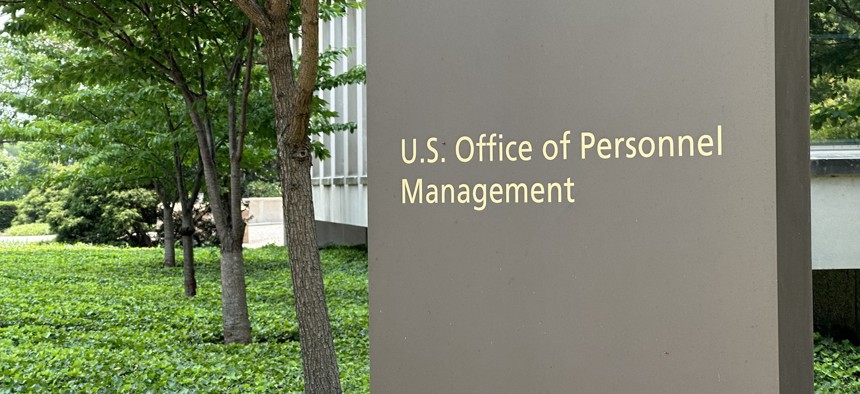
Douglas Rissing/Getty Images
Is it time to get rid of OPM?
COMMENTARY | One former House human resources official says it is.
On Feb. 6, in a stunning case of what Baseball Hall of Famer Yogi Berra once so eloquently referred to as “déjà vu all over again,” the Government Accountability Office released a report blasting the Office of Personnel Management — the U.S. government’s in-house human resources office, responsible for recruiting, benefits, payroll, and the overall management of the federal workforce — for its failure to address ongoing severe data management and security flaws, which continue to jeopardize both the personal data of federal employees in addition to the personal data of anyone who applies for a federal job using the USA Staffing/USA Jobs portal.
One year ago, in March 2023, the House Committee on Oversight and Government Reform held an oversight hearing focusing on the management practices at OPM. The results of that hearing were sobering and disturbing.
At the hearing, OPM Administrator Kiran Ahuja was forced to acknowledge that OPM had no idea how many federal employees were on its payroll. Ahuja also could not explain the lack of details surrounding the work-at-home policies adopted during COVID. She did not assign responsibility for the billions of dollars of American taxpayer money in overpayments to the Federal Employee Health Benefits program. Worst of all, Ahuja was unable to detail any remedial steps taken by OPM to harden its cybersecurity posture in the wake of the 2015 data breach at OPM – at the time, the most significant breach of U.S. government data in history, which led to the disclosure of the social security numbers and other sensitive personally identifiable information of thousands of federal employees. This breach was so expansive that the U.S. government was forced to pay for credit monitoring services for all affected employees. As of a couple weeks ago, federal officials have begun contemplating extending that protection indefinitely.
While the federal government must conduct certain tasks – such as national defense and prosecuting federal crimes – human capital management is not among them. Many Fortune 500 companies determined that workforce management policies and operations were best left to the professionals. Thus, long ago, they contracted with large human capital management firms to manage these back-office tasks. More than a few of these firms are already approved U.S. government contractors with FEDRAMP (cybersecurity) certification.
The federal government should consider doing the same. It should replace this ossified, out-of-date bureaucracy that has fallen into incompetence due to a lack of sound management and competition with private sector alternatives.
Perhaps that sounds extreme, but putting H.R. management, talent acquisition, and other back-office functions in the hands of competent, federally certified human capital management professionals would be an efficient, cost-effective way to ensure that the U.S. taxpayer is not subject to excessive costs and mistakes made by federal bureaucrats.
Any OPM functions that cannot be outsourced should be transferred to the General Services Administration — where OPM portfolios such as health and life insurance benefits can be administered by outside experts, subject to detailed oversight — or the Office of Management and Budget, where professionals can tweak federal workforce mandates and policies as requested by the president.
At a minimum, however, OPM should fire anyone involved with the 2015 data breach and all those responsible for the latest “F” grade under the Federal Information Technology Acquisition Reform Act.
This transition could occur in baby steps. It does not need to happen immediately. Once completed, however, the U.S. government’s human capital management functions will become far more efficient, safe, responsive, and secure.
Sean Moran is the former staff director of the House Committee on House Administration. In that position, he oversaw all U.S. House human resources, payroll, and cybersecurity and was one of the official liaisons during the 2015 OPM data breach. Moran has extensive private sector background in government contracting in human capital management.






